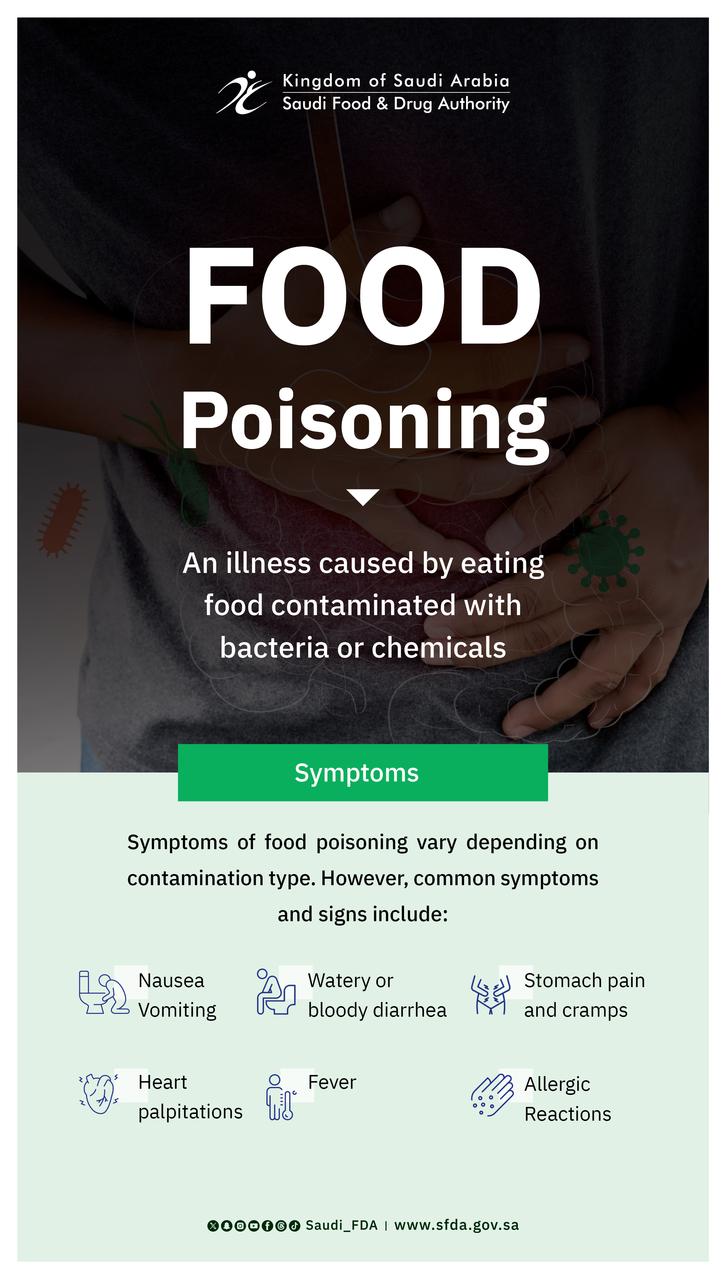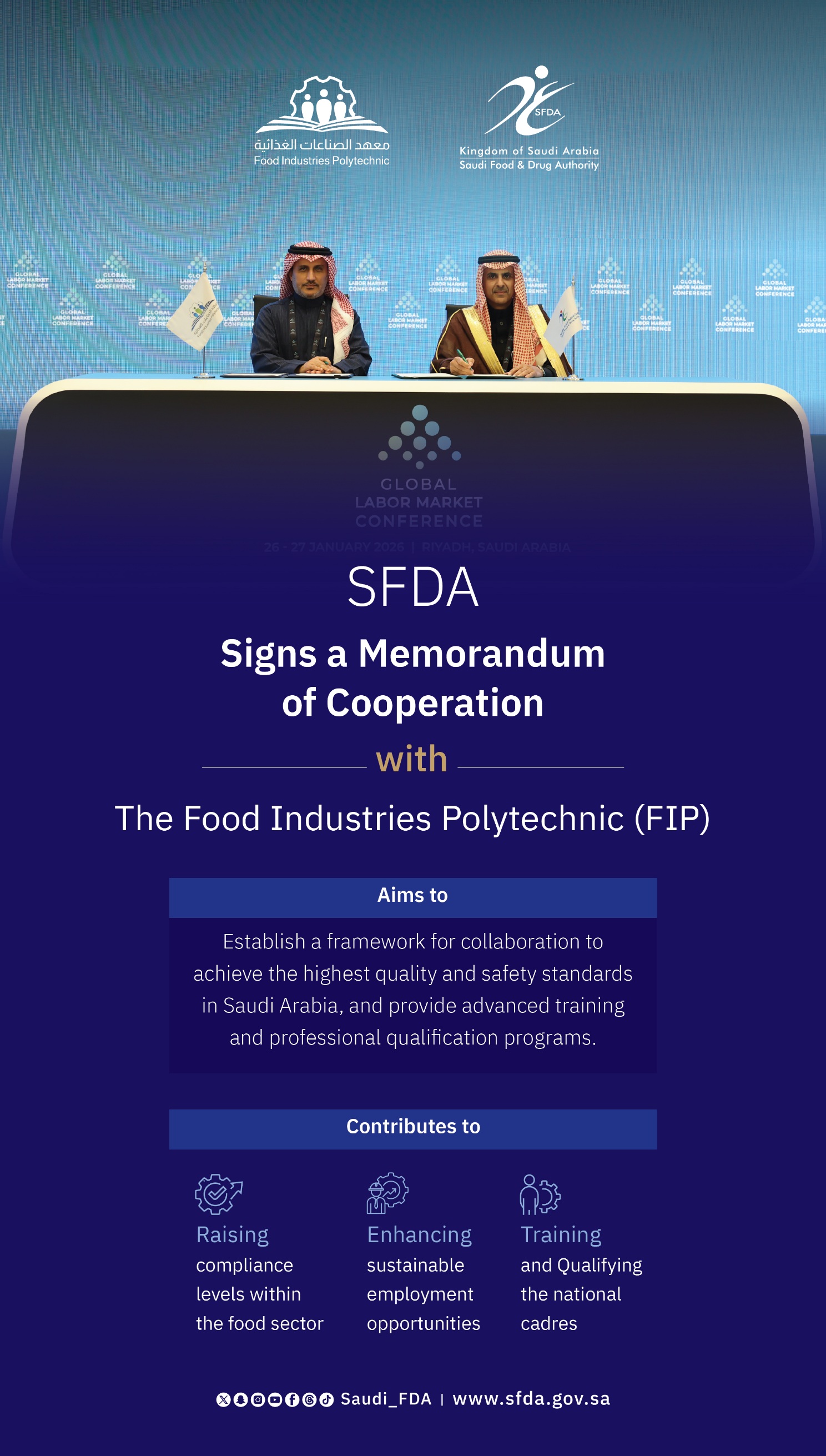SFDA Launches Food Poisoning Awareness Campaign
2025-04-07
As a part of its fourth strategic plan, the Saudi Food & Drug Authority (SFDA) has launched a digital awareness campaign to educate the public on food poisoning, its causes, and preventive measures, aimed at promoting public health and raising awareness of the community members.
The SFDA pointed out that food poisoning is an illness caused by eating contaminated foods, which may show no visible signs of spoilage. Reasons for contamination vary depending on contamination type, including pathogens such as bacteria, viruses, parasites, and fungi; chemical contaminants like natural or industrial toxins; and physical contaminants, such as dropping broken glass, hair, nails, or metal shavings in food.
Foodborne diseases can be transmitted in any phase of food production, transportation, storage, or preparation, or even cooking. Common symptoms of food poisoning include fever, abdominal pain, nausea, vomiting, or watery or bloody diarrhea.
As part of its prevention advice, the SFDA’s recommendations included thorough handwashing before and after food preparation, storing cold foods at 5°C or below, and keeping hot foods at 60°C or above, while avoiding leaving food at room temperature for more than two hours. It also stressed the importance of separating raw and ready-to-eat foods and sanitizing kitchen tools and surfaces and warned against washing food with soap or disinfectants.
The campaign included warning against botulism, which is a rare but serious illness caused by a toxin made by Clostridium botulinum if proper conditions such as improper home canning and a danger temperature zone (range between 5°C and 60°C, especially within the 25–37°C) are in place. It stated that this type of poisoning can affect adults who consume contaminated food, as well as infants under 12 months who ingest honey or other unsafe foods.
Botulism causes symptoms such as vomiting, diarrhea, facial muscle weakness, difficulty swallowing and breathing, numbness in the limbs, and dryness of the throat and mouth. The SFDA underscored the importance of following healthy instructions while cooking, washing hands and utensils, sterilizing home-canned foods, and checking canned foods when purchasing for any signs of swelling, rust, or damage. It also reiterated the critical need to keep raw food and ready-to-eat food separate for protection from this rare type of food poisoning.






